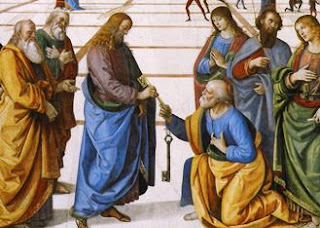1-Minute Explanations
Sharing the Catholic Faith... one minute at a time.
The Authority of Scripture and Tradition
The Binding and Loosing Authority of the Catholic Magisterium
The Real Presence of the Eucharist
Outside the Church there is No Salvation
Priests and the Authority to Forgive Sins
The Catholic Church’s teaching that priests can forgive sins is not based on human authority, but on the words of Christ Himself.
In John 20:21–23, the risen Jesus appears to His apostles and says, “Receive the Holy Spirit. If you forgive the sins of any, they are forgiven; if you retain the sins of any, they are retained.” This is not symbolic language. Christ gives His apostles real authority to forgive and retain sins. He says that He is sending the apostles as the Father had sent Him. The word "send" here refers to being sent with the full authority of the sender, which includes the authority to forgive sins.
This ministry of reconciliation is further affirmed in 2 Corinthians 5:18, where St. Paul writes, “All this is from God, who reconciled us to himself through Christ and gave us the ministry of reconciliation.” The apostles, and by extension their successors, are entrusted with carrying out this sacred work.
James 5:14–16 also instructs the faithful to call upon the elders (presbyters or priests) of the Church in times of illness and to “confess your sins to one another,” linking confession to the pastoral care of ordained ministers.





